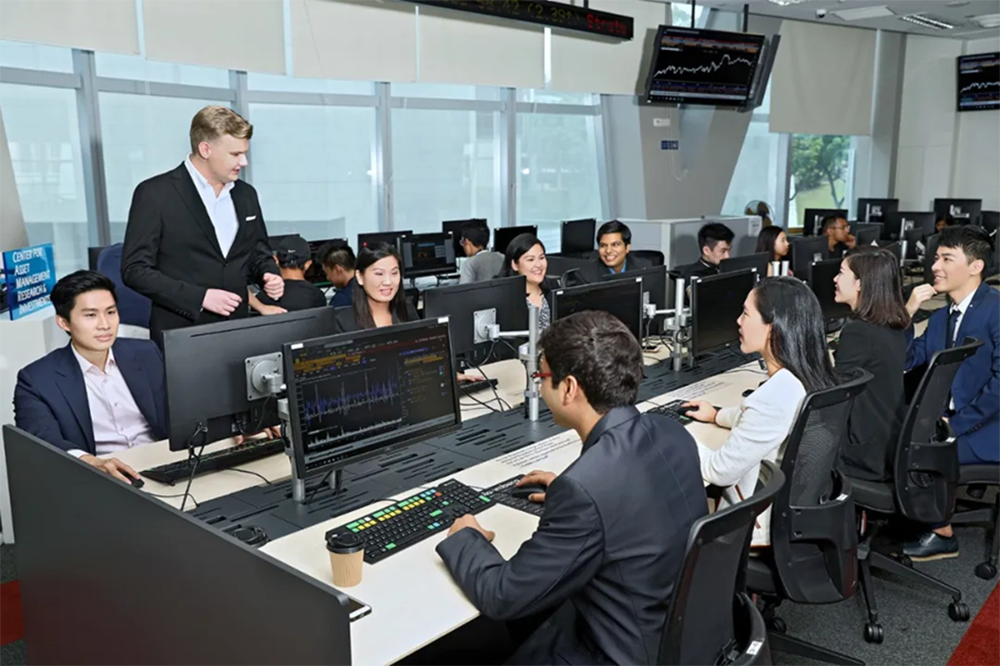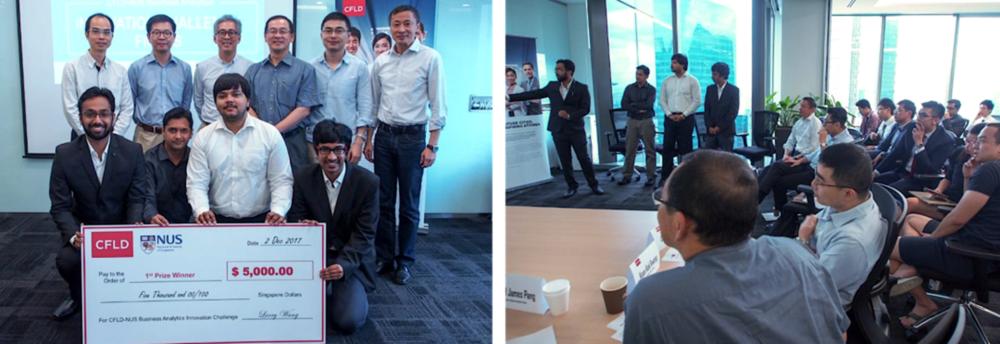The NUS Master of Science in Business Analytics (MSBA) programme is hot among applicants. Offered by the NUS Business Analytics Centre (NUS BAC) since 2013, the programme is ranked first in Asia in the QS Business Masters Rankings: Business Analytics 2022. Associate Professor James Pang, Co-Director of NUS BAC, reveals how MSBA students gain core competencies and skills that the industry seeks.
Q: Tell us more about the NUS MSc in Business Analytics (MSBA) programme. What is its advantage over other programmes in data science, financial technology and computing?
The NUS MSBA programme has two main advantages. One is its strong connection with the industry, the other is that it is a great interdisciplinary offering from NUS Business and NUS Computing.
We have long and established partnerships with more than 100 industry partners, including IBM, DBS, SAP, Johnson & Johnson, Shopee, Huawei, etc. These trusted relationships took many years to develop, they did not happen overnight.
For example, we have partnered DBS since 2013, when it was starting its foray into business analytics. Our partner then is now the bank’s Chief Analytics Officer, and our programme continues to be a source of talent for the bank.
Another example is the Johnson & Johnson Financial Planning & Analysis Centre of Excellence. Every year we see students who intern there go on to become full-time employees. Our alumni can also be found in the business analytics departments of many companies in Singapore.

An industry expert communicating with NUS MSBA students.
The second advantage of the NUS MSBA programme is the interdisciplinary education from NUS Business and NUS Computing. It helps students develop both hard and soft skills. In the real world, you need hard technical and business skills to develop good solutions, but you also need excellent soft skills to present your ideas convincingly.
Equipped with these skills, our students have done well in various local and global competitions. The prestigious Chengdu 80 Fintech Competition has been held for four years, and the NUS MSBA team’s overall results are the best. We were champions twice, and in the other two years were ranked second and fourth once respectively.
Our students have also shown stellar performance in competitions such as CIKM AnalytiCup, Microsoft Azure Virtual Hackathon, and the NUS FinTech Society Hackathon.
Q: Tell us more about the Business Analytics Capstone Module.
The 12-credit capstone module lasts for 13 months and is highly intense. It is divided into classroom lectures, seminars, the Analytics Innovation Challenge, and the Capstone Internship Project.
The capstone lectures’ content is developed based on the latest industry trends and updated constantly. For example, two themes that I teach in the capstone lectures now are blockchain and explainable AI technologies, which are hot topics in the industry in recent years.
At the weekly seminars, students get first-hand knowledge from industry experts on business analytics or AI projects that their companies are doing. Each session lasts for about two hours, and we also cover popular business analytics use cases and technologies in the industry.
Students’ knowledge from the weekly lectures and seminars will be put to good use in the annual Analytics Innovation Challenge. Teams of four to six students are given 2-3 months to develop a solution to a real-life challenge statement, based on the actual pain points from industry partners. The students are given real data to work with and will also receive guidance and feedback from the industry partner during the innovation challenge.
Finally, students have to complete successful capstone internship projects at one of the partnering organisations before graduation.
We hope they graduate with three core competencies. First, the ability to transform business needs into analytics models. Second, IT capabilities, e.g., database management, architecture design, etc, to build and deploy solutions in the industry. Third, industry exposure and domain knowledge of what the industry wants. These are gained through weekly lectures, seminars, innovation challenge competitions, and internship experience.

The winning team of the CFLD-NUS Business Analytics Innovation Challenge 2017
Q: Do applicants for the MSBA programme need to have work experience? Do they need to come from certain majors?
NUS MSBA students come from diverse backgrounds, many have work experience while some are fresh graduates. But fresh graduates are not at a disadvantage, because they are able to learn quickly when they learn alongside classmates who have work experience.
We attach great importance to diversity. When students come from different countries and cultures, majors and industry backgrounds, they learn a lot from one another.
Some majors would be deemed more suitable for this programme, such as business, computing, engineering, and science. But we also have students from other majors and professional backgrounds.
If the applicant’s major does not “match”, we recommend them to take some online courses or internships related to business analytics and AI first. These will prove their interest in this field and show that they have the necessary aptitude and motivation to be successful in the business analytics area.
To learn more about the programme, go to msba.nus.edu.sg.
All photos are taken pre-pandemic.






